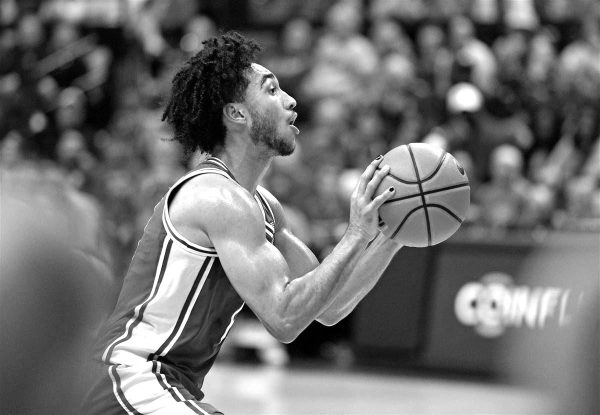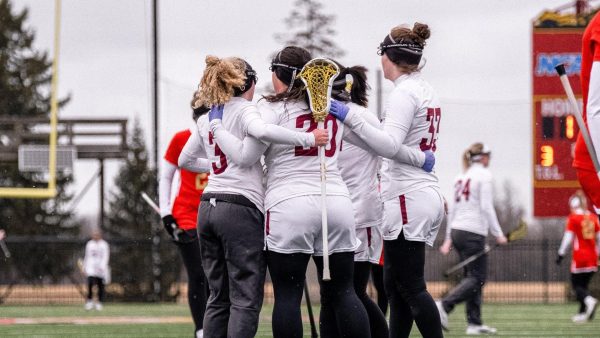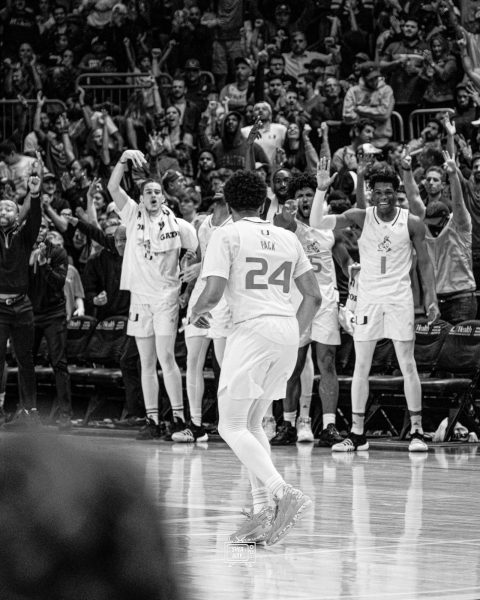Pro Athletes Destigmatize Mental Illness
Editor’s Note: This article contains mentions of mental illness and suicide.
Shooting hoops in the driveway and kicking around a soccer ball in the backyard as a kid, I never thought that being an athlete at a high level could be so taxing. My sports heroes had glamorous lifestyles, driving expensive cars and gracing the covers of Sports Illustrated. It never occurred to me that the biggest and strongest opponent that many collegiate and professional athletes ever face is mental illness.
According to Daniel Eisenberg, an associate professor of health management and policy at the University of Michigan, 33 percent of college students experience symptoms of mental illness. Although 30 percent of those students get help, only 10 percent of student-athletes do. The problem is that mental health is stigmatized in the sports world, and athletes who do speak up don’t always have access to proper resources or treatment options.
Had Madison Holleran felt understood and instilled with the confidence that she needed to be healthy, she might have graduated from the University of Pennsylvania with a double degree. She might have broken records and won championships as a mid-distance runner. Instead, she took her own life in winter 2014, leaving family members, friends, and teammates with many unanswered questions. On the outside, Holleran appeared to have it all. “Madison was beautiful, talented, [and] successful,” ESPN journalist Kate Fagan wrote.
But Holleran’s self-esteem plummeted as she struggled to keep up with the demands of being a student-athlete at one of the top schools in the country.
“She was a perfectionist who struggled when she performed poorly,” Fagan wrote. “She was a deep thinker, someone who was aware of the image she presented to the world, and someone who often struggled with what that image conveyed about her.”
Many student-athletes don’t speak up when they suffer, fearing that being associated with mental illness implies a level of inadequacy on their teams. Typically, toughness is associated with collegiate athleticism. Student-athletes wake up at the crack of dawn to lift weights while other students sleep, they come in clutch when the odds are stacked against them, and they overcome injuries and setbacks regularly. For many of them, it isn’t an option to admit that mental illness is too big a burden to battle alone.
When a baseball player makes an error on the diamond, he’s expected to shake it off. When a star volleyball player isn’t having a good day, she’s supposed to forget about herself and raise up her teammates. Stoicism and selflessness benefit athletes in competition, but may harm them individually.
Collegiate athletes are susceptible to depression and anxiety due to the increased number of stressors they are exposed to. Student-athletes dedicate several hours a day to their craft, and when they’re in season, they miss class regularly. Even so, athletes are expected to put as much time into schoolwork as everybody else. They don’t have time to rewind and reflect on other issues going on in their lives, because by the time they leave work or the library and call it a night, the alarm goes off, and it’s time to do it all over again. It’s easy to fall into an exhausting and dull routine. According to the National Collegiate Athletic Association Chief Medical Officer Brian Hainline, “The number one health issue facing student-athletes is mental health.”
The NCAA must be proactive, not reactive. Over the past several years, the organization has taken steps to support mental health. Hainline declared mental health a top priority of the NCAA in 2013, and in the following three years, two comprehensive guides to mental health challenges were published. However, more can be done. Every athletic department in the country should have a sports psychologist or counselor on staff. Student-athletes face unique obstacles and should, therefore, have easy access to someone who specializes in the mental health of athletes. Counselors should be as reachable as an athletic trainer.
In order to utilize these resources, student-athletes must be in an environment where they feel safe and comfortable expressing themselves. Many professional athletes are normalizing the admittance and acceptance of mental illness by sharing their own personal fights.
In February, DeMar DeRozan, the star shooting guard for the Toronto Raptors, opened up to the media about his experiences with depression, unknowingly paving the way for other professional athletes, including Cleveland Cavaliers All-Star Kevin Love. A few weeks after DeRozan stole the headlines, Love revealed in The Players’ Tribune that he had suffered a panic attack during halftime in a game against the Atlanta Hawks in November.
“Just by sharing what he shared, DeRozan probably helped some people — and maybe a lot more people than we know — feel like they aren’t crazy or weird to be struggling with depression,” Love wrote.
The most decorated Olympian of all time, Michael Phelps, recently admitted that he had suicidal thoughts several times throughout his career.
“I think [mental illness is] something that nobody’s really talked about in the past because we’re supposed to be this big, macho, strong person that has no weaknesses,” Phelps told CBS News. “We’re supposed to be perfect. And for me, I carried it along for so long and never really talked about it. … Part of that was probably just a fear of rejection.”
While professional athletes are not obligated to share their own personal struggles with the rest of the world, athletes like DeRozan, Love, and Phelps are setting a precedent for rising athletes. They’re changing the way that fans view professional athletes, and in turn, amateurs are changing the way that they view themselves. These stars prove that seeking help is not a weakness, and mental illness does not make you any less of a player or team leader — rather, experiencing emotions makes you human.
If a young athlete struggling to find themself hears their favorite player say that it is OK to feel overwhelmed sometimes and need extra support, then that kid is going to be more likely to feel encouraged to seek help.
Confessions by star athletes offer an important lesson. We must remember that at the end of the day, when players leave the arena or the stadium, sometimes their inner demons keep them up at night too. We should all cut ourselves some slack, no matter our age or the level we are playing at. After all, we’re only human.






